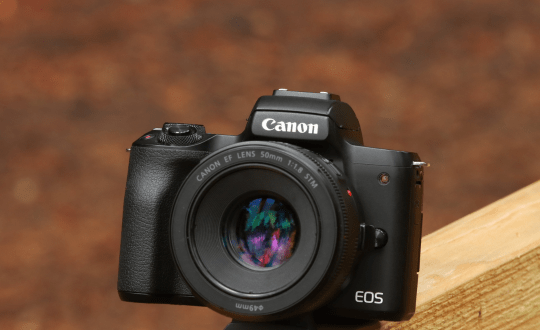Opening a photography business is the dream of many professional photographers. When you own your own photography business, you dictate your hours, prices, and the type of content you shoot. It also means you get to work in a creative field and follow your own rules. But how do you start your own business in this field? Here are some steps you can take to get your photography business off the ground.
1. Define your photography style
The first thing to do before opening your business is to determine what kind of photography you’re passionate about. You may prefer portraits or documenting happiness as a wedding photographer. Chances are you’ll have to take on clients for projects you’re less passionate about in order to make money, so it’s important to research what niches are in demand, but you can have a specialty where your passion lies.
2. Develop a business plan
Outlining your goals, both short term and long term, is a good next step so you know what actions to take and can feel a sense of accomplishment whenever a goal is met. You should also think about who your target audience is and the type of clients you want to serve. You may not have the luxury of being picky when you first start out, but once your company is established and you’re making a profit you can have more say about the gigs you accept.
Developing a business plan isn’t isolated to goal setting and choosing an audience. There’s a financial component that is less fun. You’ll want to create a budget for things like equipment, marketing, and operational costs. If you decide to take on a second shooter, their paycheck is an additional expense. Your price package will likely come from the numbers you come up with when budgeting to ensure you can not only afford your business, but also make a profit.
3. Invest in the right equipment
You may already have a professional grade camera if you’re ready to open a business, but the list of equipment you’ll need does not end there. You’ll need lenses, lights, accessories, and even props. If you’re planning on having a studio space, you’ll need an assortment of backgrounds for your clients to pose in front of if they choose. You’ll also need editing software and good hard drives to store your photos.
It may be tempting to go all out when you first launch, but you should start small with purchases and, as your business grows, you can make upgrades to your equipment. Daniela Dawson, photography student advisor at New York Institute of Photography, explains, "Reliable gear - and backup gear - will assure you feel confident going into a shoot and knowing nothing can go wrong." About 20% of small businesses fail within their first year, so you don’t want to bite off more than you can chew.
Read more: The Top 6 Cameras for New Photographers (From a Pro Photographer & Student Mentor)
4. Build your portfolio
Potential clients will likely want to see your previous work, so be sure to showcase your best work. As you get more gigs, you can build out your portfolio and highlight your niche. If you’re short on work to put into your portfolio, you can offer free or discounted sessions to build experience and get your name out there.
Daniela says, "There are many photographers out there. Your portfolio should show off your visual signature and unique style so that your work stands out to clients and customers."
Building an online presence can help you grow your business as well. Create a website and an Instagram account where you can display your work. Once you start getting clients, many of them will want to follow your career through social media and keep up to date in case they want to book you again.
Read more: 15 Tips for Creative Self-Portraits
5. Establish your brand
Building your brand is an important part of any creative business. Your brand identity should be unique and represent your style. Ways you can do this include creating your own logo and color scheme you can showcase on your website and business cards. You should also post regularly on social media so your clientele can keep up with your projects and any business news.
Read more: A Photographer's Guide to Making Money on Valentine's Day
6. Market your photography business
Marketing is a huge part of creating a successful business. We mentioned previously that you should fit marketing into your budget, so you may have things like google ads already built into your plan. You can also create a free blog to detail projects, your niche, as well as inspiration and link it to your social media pages and website.
Networking can also be a big way to help market a business like photography. Attend events, join photography communities, and connect with local businesses. Any way to get your name out there can help bring in business. You can also encourage happy clients to refer anyone they know in need of photography services to you.
7. Handle the legal aspects
To become official, you’ll want to choose the right business structure and register the business. Be sure to research local regulations and requirements and obtain any necessary licenses. You’ll want to get insurance as well to protect the business as well as your equipment. It may seem like a lot of hoops to jump through, but once all is said and done you’ll be an official business owner!
8. Manage finances and operations
All businesses have to keep books. You’ll want to be sure you’re tracking your income and any expenses you have. You can also set up a system for billing clients to make it easy. Always be sure to have a signed contract with your clients so they know what they’re responsible for. This also helps protect your business from being scammed as it holds your clients legally responsible for payment for your services.
Daniela gives some advice on this front: "Always have a contract signed by both parties before beginning a job. Include all terms, like your set price, shoot time, copyright information, cancellation policy, editing turnaround time, and deliverables that your client can expect."
9. Keep learning and growing
Trends in any creative field change frequently, so it’s important to stay up to date. Technology and styles may change and you want to be able to meet clients where they are. You can also continue to professionally develop by attending workshops and taking additional courses, and you may even be able to shadow other photographers you admire. Client feedback can be vital as well. You can supply them with a survey where they can provide feedback on the service they received.
"Community is important, especially since this can be a rather solitary job,” Daniela says. “Go to networking events, join Facebook groups, and reach out to other local photographers online - it's great to get to know people in your field, and these connections might open up new job opportunities for you as well."
Read more: How an Online Photography Course Works
Make your photography dreams come true
Starting your own photography business can be an exciting time! Making sure you’re prepared to embark on this venture is vital. Consider sharpening your skills through trusted photography courses before making the leap. Equipping yourself with more knowledge and tools can help you achieve success. You could be on your way to being a renowned business owner before you know it!







